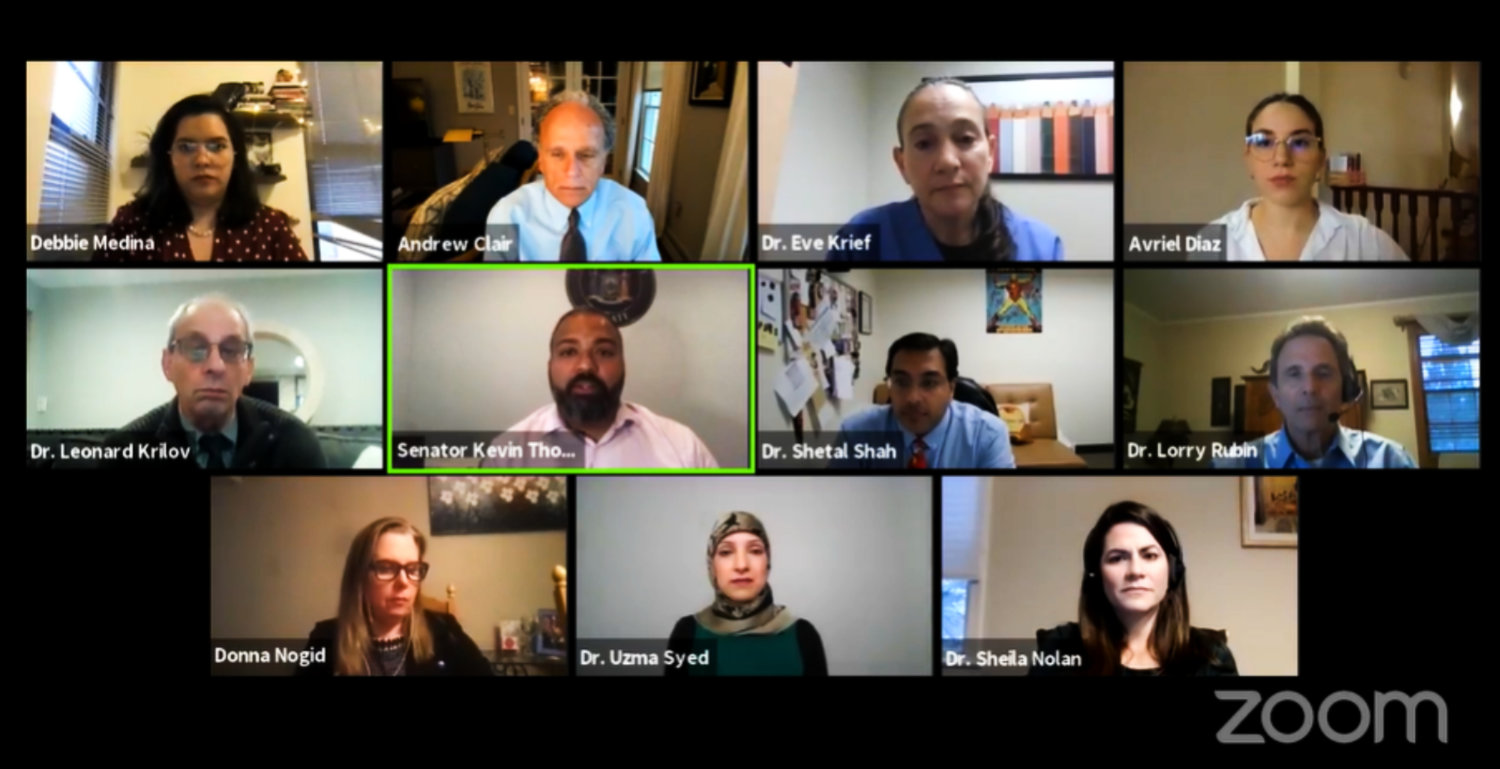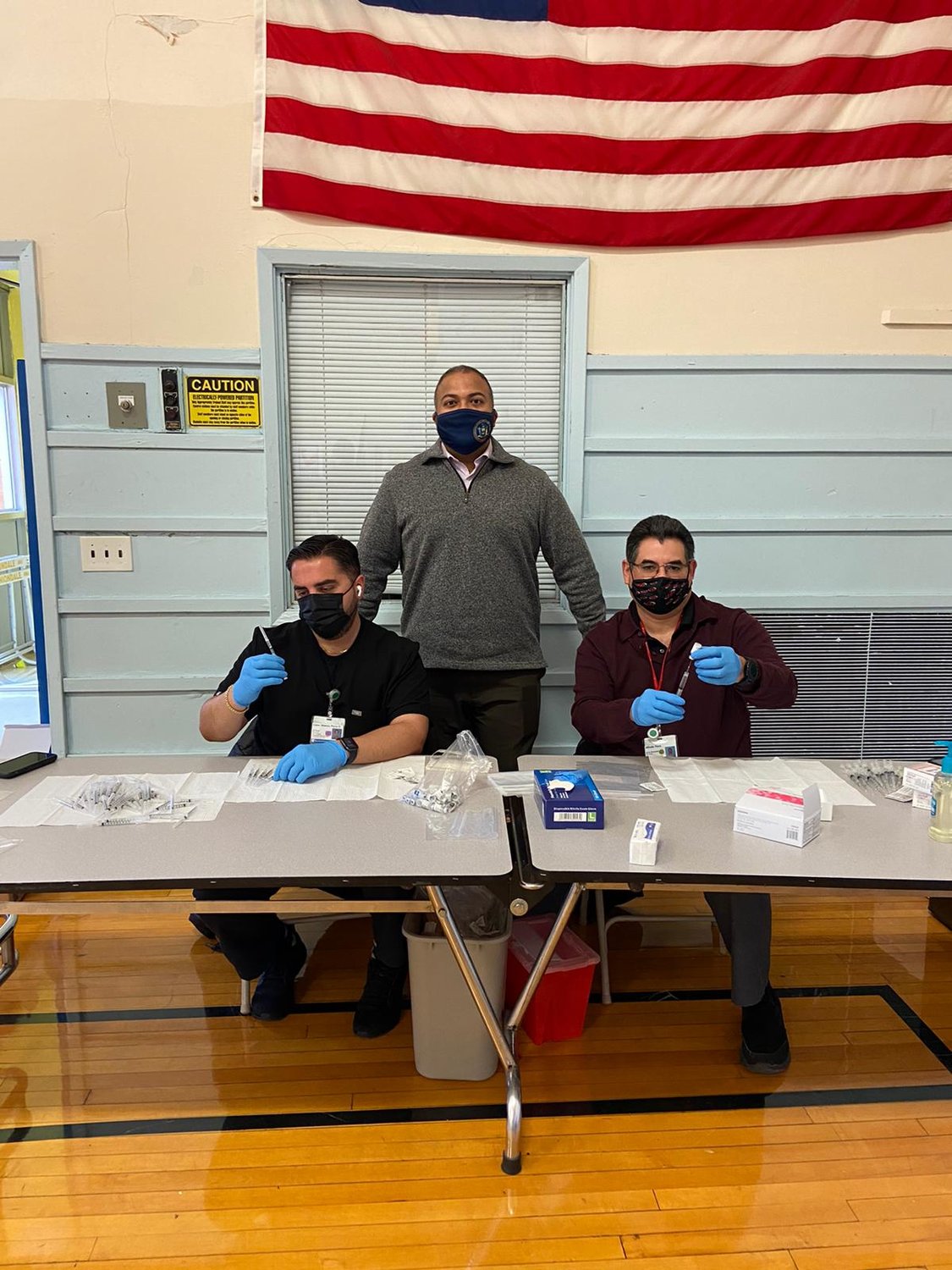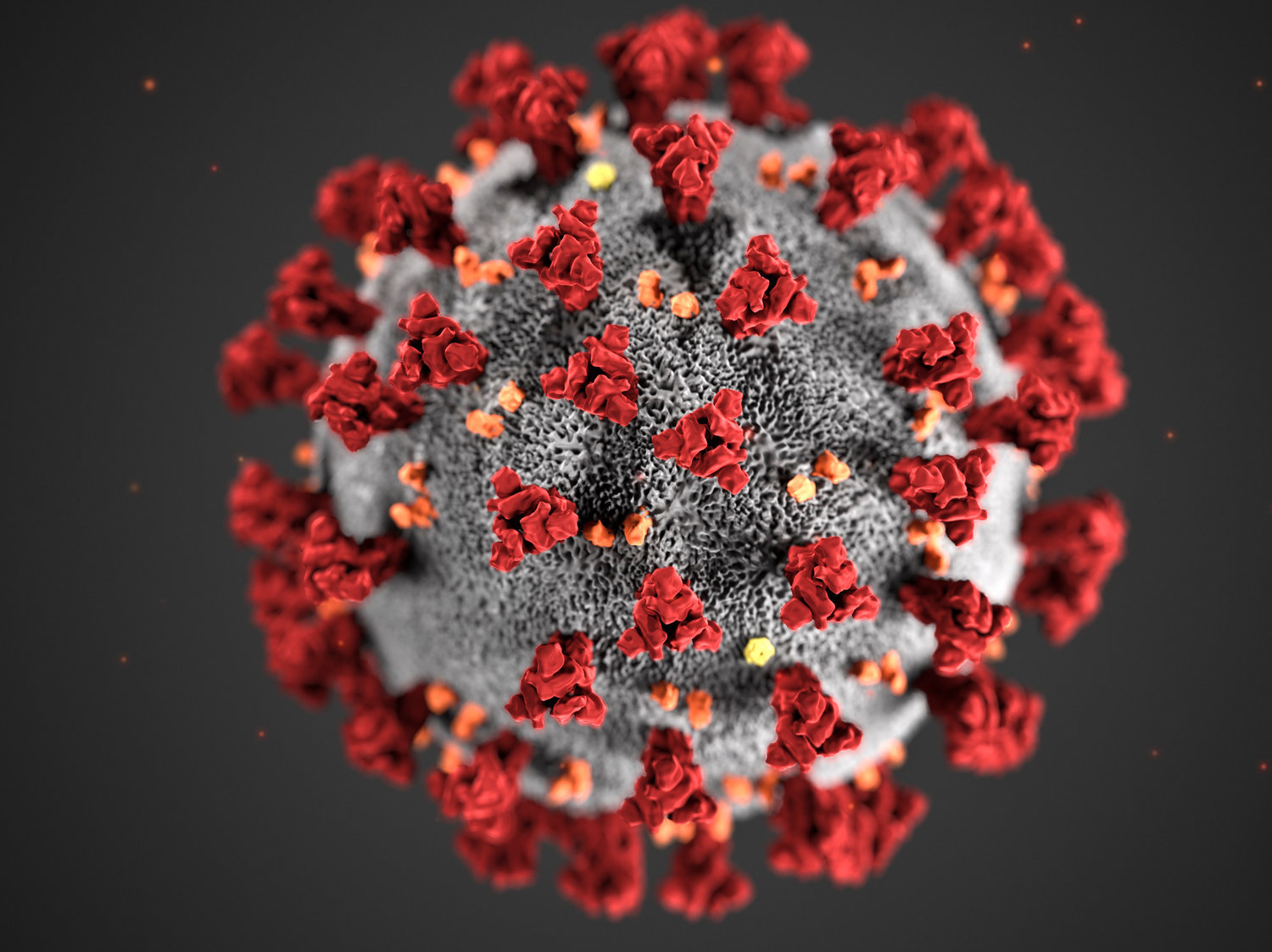Thursday, April 18, 2024
A virtual Covid-19 vaccine town hall
Plenty of vaccine questions for the experts
For a virus to infect, said Dr. Andrew Clair, a pharmaceutical consultant, it must enter a cell inside a human. In the case of Covid-19, it uses its spike proteins to grab hold of the receptor on the cell, gain entry into it and “march” across the body with the infection.
For some, the infection may be mild and barely noticeable, while others can become severely ill. Scientists and researchers believe people can become severely ill because of their genetics. People may react to Covid-19 infection by forming auto-antibodies that mistakenly target a person’s own tissues and organs. Some may also experience a Cytokine Storm, a critical immune response in a hyperactive manner where the immune system goes on a rampage through the bloodstream, causing excessive inflammation that can kill tissue and damage organs.
Physicians, Clair said, are beginning to understand how to treat these responses.
It is the spike proteins on the Covid-19 virus that the vaccines have targeted. The concept is, Dr. Andrew Clair said, that by destroying the spike proteins, the virus is inhibited from entering the cell, which further prevents infection.
BioNTech, Pfizer vaccine
How it works: mRNA — a piece of genetic code that provides the body with a message to manufacture antibodies specifically against the virus spike, thus neutralizing the virus and protecting the patient.
Effectiveness: 95 percent
How many shots: two doses, three weeks apart
Recommended for: 16 and older
Storage: freezer
Moderna vaccine
How it works: mRNA
Effectiveness: 94.1 percent
How many shots: Two doses, four weeks apart
Recommended for: 18 and older
Storage: freezer
Johnson & Johnson’s Janssen vaccine
How it works: non-replicating viral vector vaccine. Puts a piece of the coronavirus DNA inside an inactive common cold virus called the adenovirus. The DNA of the coronavirus builds spikes inside cells that activates the immune system and produces protective antibodies.
Effectiveness: 72 percent in the United States and 66 percent overall
How many shots: single dose
Recommended for: 18 and older
Storage: normal refrigeration
The mRNA vaccines have been studied for more than a decade and do not contain a live virus that could cause Covid-19 in a patient. The mRNA from the vaccine never enters the nucleus of the cell and does not interact with a person’s DNA.
DNA vaccines like Johnson & Johnson’s have been studied since 1998. It does not alter a person’s DNA because it does not have the cellular enzymes to integrate into human DNA. The vaccine also does not pose a risk for Covid-19 infection, because it does not contain the live virus itself. The patient will also not contract a cold from the vaccine.
Through a virtual webinar hosted by State Sen. Kevin Thomas, residents were able to ask medical professionals and experts the questions they had about the Covid-19 vaccine, as well as learn how the vaccine works to protecting themselves, their loved ones and communities.
“This is an incredibly important topic,” Thomas said. “This past year has been extremely difficult for all of us. Every aspect of our lives has been impacted by Covid-19, but now we are finally seeing a light at the end of the tunnel.”
On March 11, 2020, over a year ago, the World Health Organization declared the Covid-19 outbreak a global pandemic. Since then, there have been more than 120 million infections and 2.6 million deaths worldwide. Nassau County saw roughly 1.76 million infections and 48,624 deaths.
“The production of three safe and effective vaccines represent a huge step in our effort to beat this pandemic,” Thomas explained. “The more people who get vaccinated, the faster we are going to overcome this virus and get back to our loved ones, get our economy back on track and start to move back to normal.”
The Center for Disease Control and Prevention stated that that two weeks after they received both doses of the Pfizer or Moderna vaccines or two weeks after they receive the single dose of the Johnson & Johnson vaccine, those who are vaccinated can gather indoors with other fully vaccinated people without wearing a mask. They can also gather indoors with unvaccinated people from one other household, unless any of them are considered medically vulnerable.
Fully vaccinated people also do not have to stay away from others or get tested if they have been around someone with Covid-19 unless they have symptoms. However, fully vaccinated people who live in a group setting, like a correctional facility or group home, and are around someone with Covid-19 should quarantine for 14 days and get tested, even if they do not develop symptoms, according to the CDC.
As of the morning of March 16, 388,792 Long Islanders have received their first and second dose of the vaccine.
And, with the passage of the Federal Stimulus Package, $160 billion has been provided for vaccine development and distribution, with $20 billion in funding for community vaccination centers.
Three new mass-vaccination sites opened on March 19 at SUNY Old Westbury, the Suffolk County Community College Brentwood campus and Stony Brook University’s Southampton Campus. Current eligible New Yorkers include people over the age of 60, medical personnel, select essential and front line workers and people with underlying conditions.
Thomas encouraged anyone who has questions regarding vaccine eligibility to call him at (516) 739-1700. Information about how to make an appointment and eligibility can also be found online at www.covid19vaccine.health.ny.gov.
Questions answered by medical professionals
Q: “Once I have two doses of vaccine and two weeks have passed since the final dose, can I hug my grandchildren?”
A: “Where the vaccine is very effective at preventing hospitalizations and severe illness and death, we don’t know how effective they are at preventing mild illness or even moderate illness depending on the vaccine you got,” said Dr. Sharon Nachman, chief of the Division of Pediatric Infectious Diseases at Stony Brook Children’s Hospital. She added that it’s important to pose the risk of where they have been and their chances of contracting the virus. “It’s also important to recognize if you have comorbidities and if even a small illness with you can trigger something worse.”
This is why it’s important to continue vaccinating as many people as possible, said Dr. Uzma Syed, chair of the Covid-19 task force at Good Samaritan Hospital Medical Center, because the risk of transmitting the virus will decrease.
Q: What are the common side effects?
A: Dr. Andrew Clair, a pharmaceutical consultant shared that the most common side-effects based on the BioNTech, Pfizer vaccine clinical trials are pain, redness and swelling in the arm where the vaccine was injected, along with tiredness, headaches, muscle pains, chills, fever and nausea that impacts the rest of the body.
Q: “We don’t know if a recipient of a Covid-19 vaccine can still be contagious for Covid. If fully vaccinated people can still be contagious, how can we reach herd immunity since vaccine recipients can still spread the disease? What is the length of time after the second dose that we can reasonably be sure we’re protected from the virus?”
A: “No vaccine is 100 percent affective,” said Dr. Leonard Krilov, a professor of pediatric infectious disease at NYU Langone Hospital. “We are also seeing more and more data that if you’ve been vaccinated, the risk of getting infected, the risk of shedding the virus, is much lower. The more people get vaccinated, the lower amount of virus is around, the greater the protection, the lower the risk of transmission.”
To watch the full vaccine town hall, visit www.facebook.com/SenatorKevinThomas/.
HELP SUPPORT LOCAL JOURNALISM
The worldwide pandemic has threatened many of the businesses you rely on every day, but don’t let it take away your source for local news. Now more than ever, we need your help to ensure nothing but the best in hyperlocal community journalism comes straight to you. Consider supporting the Herald with a small donation. It can be a one-time, or a monthly contribution, to help ensure we’re here through this crisis. To donate or for more information, click here.
Sponsored content
Other items that may interest you








